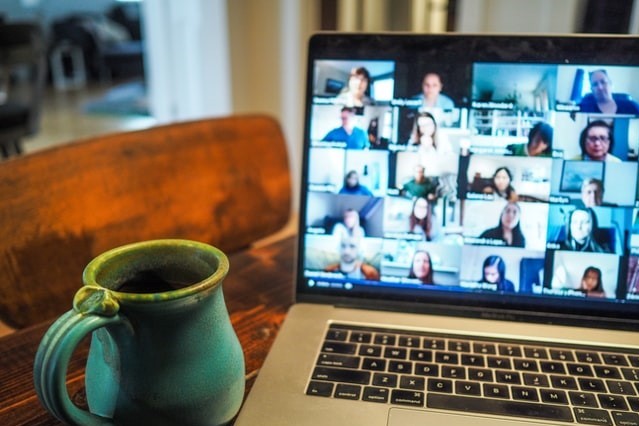Brush Up On Conference Call Best Practices With These 7 Tips

Many of us have been forced to work remotely because of the COVID-19 pandemic, and even those of us that were already working remotely might not be aware of some of the unspoken rules of conference call etiquette. We’ve all experienced a bad conference call. You know what I mean—the call that feels like a complete waste of time, where everyone is having their own conversation, we can’t remember what we were supposed to be discussing, and we leave feeling disappointed? Yeah, those conference calls. Or, in other words, the bane of all productivity.
If you’re unfamiliar with how to be a good host or even a good call attendee, you’re in luck. This guide will cover some of the best conference call practices so you can start hosting better calls right now. Don’t let distractions and poor tools get you down; pay attention to these seven conference call best practices, and you’ll be hosting the most productive calls ever.
Mute Your Mic!
Please mute your microphone? This is probably the number one killer of productivity in a conference call. One minute we’re talking about Q1 sales and getting into some really good stuff, and the next minute, we’re hearing Dave’s microwave heating up a Hot Pocket on high with the news blaring in the background. Not exactly conducive to productivity, is it? Now we’re hungry and thinking about tomorrow’s snowstorm!
All jokes aside, not muting your microphone is not only completely disrespectful to the other people in the call, but it’s also a metal rod in the spokes of the call’s productivity. If you want to have productive, conversation-rich conference calls, encourage everyone to mute their mics until it’s their turn to talk. We don’t need to know what your microwave sounds like, Dave!
Did You Bring The Agenda?
This one’s for you, call hosts. Did you bring an agenda? Did you even make an agenda? Agendas are the road maps of conference calls, and if you don’t have one, you’re going to end up on a million different topics and completely derail yourself from the initial point of the meeting. Use an agenda. There are literally thousands of templates online that you can use to make it perfect and pretty. Or, you can just write down what you want to talk about on a piece of scrap paper and go from there. As long as you’re putting something to paper (or email, digital paper, anything), you’re already ahead of where you were without an agenda.
Distractions Everywhere!
Distraction is the death of productivity, and it’s no different in a conference call. If you’re using online tools like Vast conference software, you’re already connected to the internet. At the click of a mouse, you can have access to just about any kind of content, information, or media you could ever want. That’s a lot of temptation pulling you away from this year’s “year in review” meeting that you’re just dying to sit through.
The point is that eliminating distractions as much as possible will help you focus on the call. Use your computer instead of your phone, and put your phone away in a drawer somewhere until the call is over. Only open the conferencing app on your computer, and keep Google Chrome or Firefox closed the entire time. Otherwise, you’ll end up down the rabbit hole.
Keep It Short, Please
I can pretty much personally guarantee that no one who ever sat through a two-hour meeting was totally thrilled to be there that long. None of us truly enjoy meetings, but they’re a necessary part of corporate life, and one that we need to polish up for maximum productivity. This means we’re not going to host meetings with two-hour limits anymore. The best practice here is to keep meetings under one hour—preferably closer to 30-45 minutes for maximum retention.
Don’t Be Late
Being late to a meeting of any kind is disruptive and potentially disrespectful to everyone else’s time. When you’re late, you’re making an unsaid statement that your time is more important than the other callers’, even if you weren’t late on purpose. Regardless, the people in the meeting will have to stop, maybe even go over the points they’ve already covered again, and potentially end up in the meeting for even longer than they thought. That’s not a good way to make friends, or have productive calls. Be on time.
Give Me A Reason
Have you ever been to a meeting that should’ve just been an email? Of course, you have! We all have. There are always those meetings where we think, “wouldn’t an email have saved us an hour of our time?” Why yes, yes it would have. It’s important as the host of the meeting to determine whether or not you truly need a meeting. Can this be discussed via email? Group chat? In the break room? Do we really need to put a call together?
Be Respectful
The bottom line of conference calls is that you’re participating in a group activity with other people, which means being respectful of those other people should be a top priority for everyone in the call. This means not talking over other people, waiting your turn, not behaving inappropriately, and staying focused. If you can’t respect the people in the call, how can you expect them to respect you?

